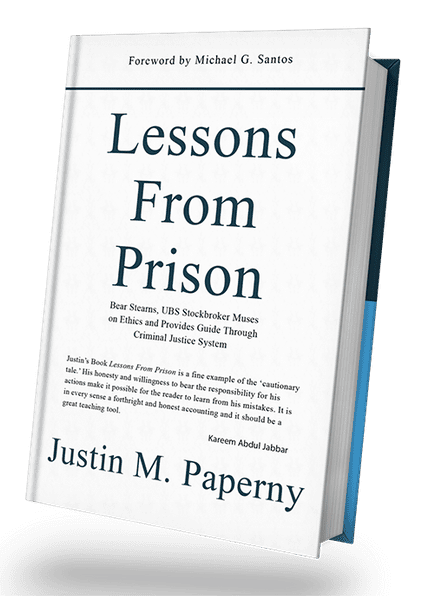Executive Blames Himself For Long Federal Prison Sentence
Poor preparation can lead to severe consequences in the sentencing phase. After a drawn-out four-year period that overlapped with the pandemic, our new client was sentenced to a 60-month federal prison sentence. The mental toll of the waiting period effectively extended his sentence before it officially started.
Decision Points
After leaving our meeting (with his blessings), I filmed a live YouTube video. Others need to see firsthand the risks of inaction. The executive in question knew the playbook (like many of you, he saw our interviews with Federal Judges), yet he didn’t follow through.
Taking Responsibility
The narrative here is about a man accepting his missteps and blaming himself solely. He knows that his outcome would have been different if he had acted differently. Rather than obsess over the past, he is committed to doing better moving forward: our initial task is to help him create his release plan. He will also volunteer at the Prison Professor Charitable Corporation.
Missed Opportunities
This executive found our work in June 2022 after reading our profile in The New York Times. That article led him to the videos we filmed with Federal Judges. He knew he needed to build a strong case for government stakeholders. But his proactive efforts were sidelined by his attorneys, who suggested he had more time. Yet, time has a way of slipping unnoticed, especially in the justice system.
Work Ethic and Perception
Despite understanding the value of work and its impact on sentencing, our new client remained inactive, possibly comforted by financial stability. This inaction was made evident during his probation interview, which did not reflect any significant effort or advocacy on his part. His probation interview was 15 minutes.
The Impact of Advocacy
Imagine the potential shift in perception had he presented a compelling narrative of his transformation and remorse to the probation officer. Imagine if he continued to build on that transformation between the probation interview and sentencing–nearly two years. Such advocacy could have significantly influenced the sentencing decision.
Moving Forward
Our client’s journey toward preparing for federal prison and working for an earlier release is underway. His experience is a cautionary tale: proactive steps today can prevent regrets tomorrow.
Profit from his losses and get started now. It is already late in the game.
Justin Paperny
Get Our Audible Books!
Now Available: The WCA App

Already Sentenced? Use Our Calculator To Estimate Your Release Date


Contact Us
- 818-424-2220
- Support@whitecollaradvice.com
- 32565 Golden Lantern, Suite B1026 Dana Point, CA 92629



